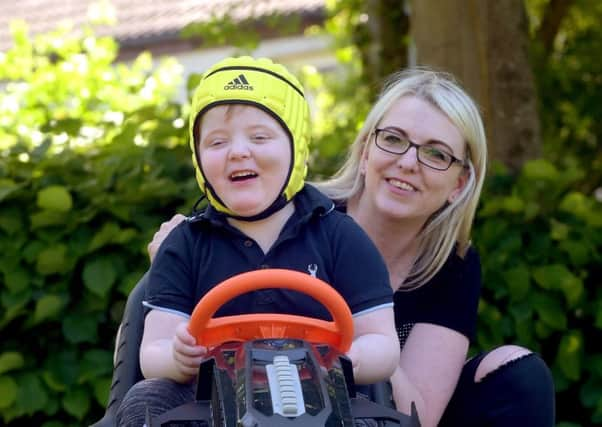Leader comment: Medical cannabis decision a victory for common sense


It was always an absolute nonsense to ban cannabis-based medicines, while happily prescribing vast amounts of opioid-based painkillers. Both have been used illegally for years and both have valuable medicinal properties, but only one was outlawed.
So, Home Secretary Sajid Javid, who only took over the job in April this year, deserves praise for disregarding any hysteria about being ‘soft on drugs’ and finally agreeing to allow the use of cannabis oil and other treatments in Britain to help people such as young epilepsy sufferers like Murray Gray and Alfie Dingley.
Advertisement
Hide AdAdvertisement
Hide AdJavid appears to have been moved to make the decision by their plight, saying “recent cases involving sick children made it clear to me that our position on cannabis-related medicinal products was not satisfactory”. While he moved quickly – by commissioning a review by Dame Sally Davies, the chief medical officer for England – it is perhaps surprising that it has taken the UK Government so long to reach this conclusion.
One might think that it must have taken a heart of stone to consider the cases of Murray, a young boy from Edinburgh who was experiencing upwards of 12 seizures a day, and Alfie, from Warwickshire, who was having up to 30 a day, and still refuse to allow helpful cannabis-based treatments.
However, politicians are forced by the nature of democracy to make decisions with public opinion in mind. Going against perceived wisdom is a risky step to take, one that could end a political career and set back a necessary reform for a generation. And that was why, as he made the announcement, Javid was sure to stress that while the decision would “help patients with an exceptional clinical need”, it was in “no way a first step to the legalisation of cannabis for recreational use”.
Anyone suggesting that it is should consider the use of diamorphine by the NHS to relieve pain or, to give it its other name, heroin. No-one is suggesting that practice should be banned because it sends the wrong message about the dangers of heroin addiction.
The legalisation of cannabis for recreational use would be a retrograde step. This country already has enough problems with alcohol and cigarettes – such as drink drivers and cancer deaths – and there is evidence that excessive use of cannabis can cause mental health problems.
But, today, we should welcome the application of common sense to the ‘problem’ of medicinal cannabis.
